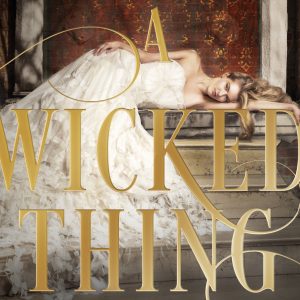Article #3: Fearless Negotiation: An Agent’s Most Important Role for an Author
Of all the skills a literary agent is required to have, the most important is the ability to negotiate well on behalf of the author client. Authors hire agents to protect their business interests in publishing. In my mind, and other folks may disagree with me, all other skills are kind of moot without this one.
This is why a literary agent has a job.
To say this another way, your agent might be a great communicator or team builder, give great marketing feedback, have good relationships with editors, have good taste in picking projects (all wonderful skills to have), but if they aren’t also a good negotiator, then just how valuable are these other skills to you and your career? A good agent will have the complete skill set.
All this begs the question: How do you know if your agent is a good negotiator? Here’s how:
1.) Good agents negotiate all deals. Sounds simple enough. Doesn’t that always happen? Not necessarily.
Good agents don’t accept the initial offer from the editor. There is always something that can be negotiated. A higher advance, a better escalator in the royalty break, two books instead of one, restricting the rights, holding or giving audio. The list goes on and on. I share with my authors the original offer and then the final offer before accepting. Does your agent? They should.
Good agents negotiate the deal even if an author brings the publisher offer to the agent. Where the offer comes from doesn’t matter. Every deal and every contract is negotiable. Always. There are no exceptions.
Good agents are willing to walk away from an offer if the terms aren’t favorable enough for the author. If you are interviewing agents, ask if that person has ever walked away from an offer and why. Every good agent will have a story.
Here’s mine. There is a small but well-known publisher that doesn’t include an actual out-of-print clause in their contract. Instead, they include a clause that says the Publisher will hold a meeting once a year and determine, in good faith, whether the rights should revert to the author.
Well, isn’t that nice and vague? Why have a contract at all then? Why don’t we just shake hands on a deal and the whole publishing endeavor and go from there?
In my view, the contract exists so that crucial items like this are clearly spelled out. After much back and forth, during which the publisher asked why I thought I was so special when the editor could cite dozens of other agents who had allowed their clients to sign the contract with this vague language (uh, why?), I counseled the author to walk away. Ultimately the author makes the final choice. It was devastating and super hard for the client, but said client did walk away. That publishing entity is now defunct.
Talk about dodging a bullet in the long run…
2.) Good contract negotiation takes time. Literally.
Even with a basic boilerplate for my agency in place, most contracts take 6 to 12 weeks to negotiate fully. Every author is unique. Every deal is unique. So every contract negotiation is unique. There are many rounds of back and forth for the requested changes, as publishers are always introducing new clauses or making tweaks to their house contracts. In addition, there may be unique elements negotiated for your specific deal that necessitate changes to several contract clauses that won’t be true for any other author at that particular house.
The contract belongs to the author, so the author has a right to know all the details about what was negotiated on his/her behalf. When I complete a negotiation, I send on the final contract to the author along with the master redline that shows all the incorporated changes. I also send along the requested changes documentation with all my notes and responses from the publisher so the author can read the entire communication chain. They see what was given, what was let go, and why. In ad nauseam detail.
The contract is legally binding, and you, the author, are going to sign it. Don’t you want to know and understand what your agent has negotiated on your behalf? If I were an author, I certainly would! I don’t share this info just to “be nice.” It’s rightfully yours.
Does your agent share these details with you? If not, why? Ask for it. Read your contract in its entirety. If there’s anything you don’t understand (and it’s OK if that’s the entire contract!), schedule a phone call with your agent to discuss.
It wouldn’t surprise me if the number is around 50% for agents who don’t fully understand a publishing contract or have the ability to explain the meaning and importance of the clauses there in detail.
Do you really want that person representing you?
If a new boilerplate from a publishing house is introduced, then it can take 6 to 9 months to get a new agency boilerplate in place that is reasonable for an author to sign. In the last 6 years, both HarperCollins and Macmillan introduced entirely new contracts. Rumor has it that later this year Random House and Penguin will merge their contract forms into a new Penguin Random House contract boilerplate. I haven’t seen it yet but it’s probably coming in the not-so-distant future.
Contracts turned around quickly or that take less time than what I’ve mentioned above = the agent is not negotiating or is not standing firm on key items until a compromise is found. And compromise can always be struck so both publisher and author are happy. But that takes time and several rounds of negotiation.
You don’t want agents pushing through a contract quickly simply because they need the money, or can’t be bothered, or don’t understand the clauses.
By the way, most agents are not lawyers (although some are). I’m not, nor do I think it absolutely necessary for an agent to also be a lawyer. An agent just has to be good at publishing contracts—which often necessitates thinking like a lawyer. None of the publishers’ in-house contracts managers I work with are lawyers either, and yet they do the negotiation. However, lawyers are often consulted on points of intellectual-property law if necessary.
By the way, lots of smaller agencies work with freelance professional contract managers (who once worked in-house for the big publishers) to assist in contract negotiation. This is a good thing, and I highly recommend it so that the author benefits from the contract manager’s savvy and gets a level of protection if the agent sucks at negotiation.
But it’s still essential for an agent to be a good negotiator. Why? Because it’s the agent who negotiates the initial offer (that’s what you’re paying them for!), not some hired contract professional. And often that necessitates some savvy pre-negotiating skills during the offer stage—before a contract is even generated. For authors further along in their careers, this is a given; they know it needs to be done. It’s not a maybe. And if your agent is not a good negotiator, you can see pretty clearly how that is going to impact your level of success and your longterm writing career. Your agent might not know how to do this.
Next month, Karen and I will tackle The Negotiating Tactics of Good Agents.
*******
The genesis: In January 2015, Backspace co-founder Karen Dionne and I had a conversation in which she mentioned that writers sometimes want representation so badly they are willing to sign with an average or even a below-average agent. Trust me, not all agents are equal. I replied, “Well, writers don’t know what they don’t know.”
In that moment, a lightbulb went on for both of us. Writers don’t know what a good agent does. How could you if (1) you’ve never experienced it and (2) you’ve only ever had one agent and no way to assess just how strong he or she might be at the job?
Thus, this series of articles was born.
*******
Archive:
February 2015 Newsletter – Article #1: Agent As Savvy Business Manager
March 2015 Newsletter – Article #2: Commanding Authority: An Agent’s Negotiation Edge.








